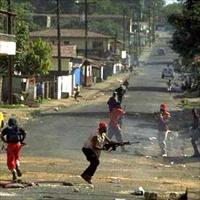KENYA-SUDAN: Clashes halt refugee returns to Jonglei state

The UN Refugee Agency (UNHCR) has temporarily halted the repatriation of Sudanese refugees to Jonglei state in the south where recent clashes have left 34 dead.
The fighting is blamed on conflicts sparked by cattle thefts between the Murle and Dinka communities.
"The situation remains tense, with fears that the revenge attacks could spread to other parts of Jonglei state, including Pibor, Boma and Porchalla - major return areas for refugees and internally displaced persons," UNHCR stated on 4 December.
Tension has risen in the state since the clashes started a month ago, prompting leaders of the Murle community to demand a government inquiry into the situation. In a 3 December statement, they called for the relocation of the wounded away from Bor, a town in Jonglei, for safety reasons.
Three days earlier, seven Murle people were killed by a mob believed to have been Bor Dinka at a compound housing the medical charity, Médecins Sans Frontières (MSF), in a flare-up of animosity between the two communities.
According to local Sudanese media, officials of Jonglei state had told a rally attended by thousands in Bor town on 17 November that insecurity in the area was being created by factions of the Murle.
UNHCR said the suspension of repatriations would mostly affect refugees from Kakuma camp in northwest Kenya. About 85 percent of the 3,000 refugees in the camp have registered for repatriation to Jonglei state by the end of December.
By 21 November, UNHCR had assisted 4,577 refugees to return to South Sudan from Kakuma, according to UNHCR spokesman in Kenya, Emmanuel Nyabera, including 200 who left for Bor on flights from Kakuma on 21 and 22 November.
In total, UNHCR has supported the repatriation of 70,000 refugees to South Sudan since it launched an assisted voluntary repatriation programme in December 2005.
 Back and Next - Back and Next
Back and Next - Back and Next See Also - See Also
See Also - See Also